Believe me when I say that Consumer Reports is WRONG about iPhone 4
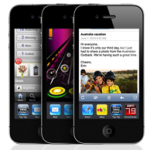
Now that I'm comfortably satisfied with iPhone 4, it's time for a quick review -- and big whack against Consumer Reports, which has once again disavowed a smartphone its editors highly ranked. This morning, Instapaper creator and Tumblr developer Maro Arment tweeted: "Consumer Reports got hooked on inflammatory Apple traffic." I thoroughly agree. The only Death Grip remaining is Consumer Reports clutching to pageviews and trying to save face, which the organization really lost by rating iPhone higher than other smartphones but later giving a no-recommendation.
Apple's newest handset is the first I enthusiastically recommend -- that after dissing the first-three generation models; I found the number of dropped calls to be unacceptable and, more importantly, battery life to be inadequate to support the functions. In stark contrast, calling experience is superb on iPhone 4, by every measure. No longer am I having calling problems -- dropped or failed connections -- anywhere in the San Diego, Calif. area.
Bing overtakes Yahoo, and that's not a good thing

Short-sighted armchair analysts, pundits and Microsoft managers will rejoice in Bing snatching the No. 2 spot from Yahoo in U.S. search share. Everyone should cool their jets. Yahoo's losses are Microsoft's losses. The only gain that matters: Search share taken from Google, which isn't giving up much of anything to either Microsoft or Yahoo.
The problem: With Microsoft now serving up Yahoo search, the two are really one from a share perspective. Bing is starting to cannibalize Yahoo search, which simply isn't good for Microsoft.
Are IDC and Gartner mobile OS forecasts trustworthy?
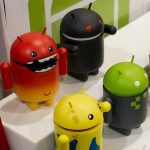
Microsoft's funeral for BlackBerry and iPhone is eerily foreshadowing. Apple 2.0 blogger Philip Elmer-DeWitt asks "Who Will Bury Whom?" It's the right question, but there's no easy answer. Last week, Gartner and IDC released seemingly non-congruent forecasts about mobile operating systems' futures. Whom should you believe? Gartner, IDC or Microsoft?
Windows Phone 7's release to manufacturing, which the mock funeral celebrated, is Microsoft's bold assault to recover lost territory. Before Apple released iPhone in June 2007, Windows Mobile's market share trailed only giant Symbian. Fast forward to 2010, and Microsoft's mobile OS is No. 5, whether measured by smartphones or all handsets, according to Gartner. Can Microsoft retake market share territory captured by upstarts Apple and Google?
Microsoft's Stephen Elop moves to Nokia -- what a waste
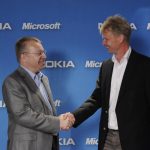
If Stephen Elop's only qualification to run Nokia is that he isn't American, the Finnish phone giant is in big trouble. Elop is Canadian. That's right, Microsoft's Business division president is stepping down and moving up. That leaves two divisions for Microsoft CEO Steve Ballmer to run -- he already is overseeing Entertainment & Devices. Elop assumes his new role as Nokia CEO starting September 21. That's not exactly two weeks notice, is it? Or the customary several months that executives of Elop's caliber usually give.
No disrespect intended, but Elop wouldn't be my first choice to run Nokia, nor would he make my list of top-100 candidates. If someone handed me a list of people not to choose, Elop would be among the top five. I love Nokia. I lauded its handsets for years. But this great company has pissed away market share and bungled the most basic innovations since Apple launched iPhone in June 2007. Elop may be the greatest mistake of all and sure sign Nokia won't effectively execute against Google's rising Android Army or Apple's iOS cultists.
IDC: Apple iOS market share will decline 26 percent through 2014
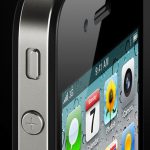
Today, IDC raised its forecast for 2010 global smartphone shipments. Is it any wonder? "Hot" defines an exciting summer of new models, including iPhone 4 and scads of big-screen Android smartphones. Meanwhile, Nokia is ready to pop the N8 (It's almost Nokia World, folks!), and Microsoft has already started marketing Windows Phone 7 even before the first devices release.
The analyst firm published a forecast through 2014 that shows Apple's iOS losing market share and Microsoft's mobile OS gaining but not rising from fifth place. Android -- what in a statement Ramon Llamas, IDC senior research analyst, called a "wild card" -- is forecast to make the greatest gains.
Why can't Apple's Ping sing?

Is Apple going to compel me to write another "I was wrong post?" Yesterday I extolled Ping -- Apple's new social music discovery tool -- based on features and product strategy. Finally, late last night, Apple widely distributed iTunes 10, giving me the chance to finally use Ping. The results aren't good. The discovery tool is simply useless, because Ping doesn't reflect my current music listening habits.
One of Ping's most important personal features is "What I Like." It can automatically display 10 popular songs, allowing friends to see what the Ping user (hereafter referred to as Pinger) listens to (there is a manual option, too). "What I Like" is crucial to music discovery friend-to-friend, and it broadcasts the Pinger's music tastes to the world. How embarrassing for the teen chugging Ke$ha, B.o.B., and Katy Perry, only to find Ping plunking Perry Como into "What I Like."
Steve Jobs: 'Ping is for social music discovery'
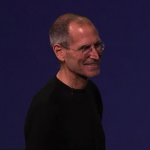
Apple's September 1 music event ended on a sour note. Coldplay's Chris Martin gave a tepid and pitchy performance that would have sent him packing from an American Idol audition. Michael Stanclift aptly tweeted: "This guy could have practiced before this gig." Martin, whose daughter is named Apple, seemed like the right performer for what was otherwise an outstanding event. While Martin muffed, Apple -- the company, not his child -- hit every key. Not since the first iPod nano launched five years ago has Apple delivered such spectacular new music products.
For the past week, pundits and rumormongers spewed forth the most ridiculous and seemingly sensible conjecture about what Apple would announce today. Nearly every rumor was wrong. There was a new Apple TV, but with no storage, no apps and no gaming capabilities. It's a Roku with a nicer design and streaming support for Apple services and devices, Netflix and YouTube. Yes, there are 99-cent TV rentals as rumored, but only from ABC and Fox -- and they're all HD. Otherwise, the rumors missed all the significant stuff, even the most important details about the new multitouch iPod nano. Who guess right about iTunes 10? There was no iLife `11 as rumored, among the other bits of mistaken reporting (and blogging).
Where have all the PC sales gone?
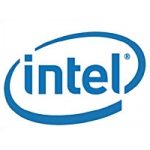
It's the question to ask now that Intel has issued a third-quarter profit warning. Right, this is the same company that reported its "best quarter ever" just last month. Strong PC sales mean more chip sales for Intel, and second quarter was scrumptious-delicious. PC shipments rose 21 percent year over year, according to Gartner, beating estimates. Apple and Microsoft had record quarters, too. Everybody swayed in the mosh pit of love, singing praises to a PC market recovered from recession.
Today, Intel sang a different tune, cutting its revenue estimate to $11 billion from a previously forecast range of $11.2 billion to 12 billion. "Revenue is being affected by weaker than expected demand for consumer PCs in mature markets," according to the press release. Yeah, Happy Friday to you, too, Bud.
Remembering Windows 95's launch 15 years later
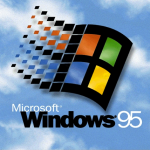
Some moments are culturally defining. They pave the way for a generation of consumers. People of my parents generation still remember the Beatles appearance on the Ed Sullivan Show. I recall long lines to see the movie "Jaws," which gave A-movie status to scary B-movies. Many young adults of this generation will recall iPhone's June 2007 launch. Some moments define us. So it was this day 15 years ago. Windows 95 launched to long lines at midnight on Aug. 24, 1995.
Do you remember? Please share your Windows 95 story/memories in comments. Or send e-mail to joewilcox at gmail dot com. If I get enough good stories, I'll compile them into a separate post.
Is Apple the real U.S. PC market share leader -- or soon will be?
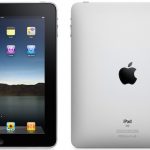
The answer to the question depends on how iPad is classified and how the shipments add up combined with Macs. Is iPad a PC, like Windows tablets or low-powered netbooks? The definition is sure to generate controversy because of what's at stake -- which manufacturer is market share leader in the United States.
Late yesterday, I contacted Gartner and IDC, which both measure global PC shipments. But only Gartner responded to my question about how iPad is classified. It is clear from preliminary second quarter PC shipment data that neither analyst firm calculated iPad with PC shipments (Gartner explicitly explained so in its press release: "Gartner's PC group does not track media tablet sales in this PC shipment data, so iPad sales are not included in these results.") A Gartner spokesperson responded to my question about classification: "We don't have data for this category yet. We hope to have some stats for this category at some time shortly."
Is Facebook stifling innovation?

The answer could prevent startups like foursquare from ever coming to be.
I predict that social geotagging service "Places" will be Facebook's TCP/IP moment. During the 1990s, Microsoft started to aggressively integrate previously standalone features into Windows, with TCP/IP and disk compression being notable. The features' integration made products from smaller companies -- many of them startups -- redundant. Microsoft didn't necessarily offer something better, but something free and easily accessible as part of Windows.
iPad likely cannibalizes Mac sales, but that's OK
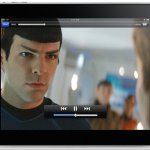
Analysts and pundits have fiercely debated whether or not iPad would cannibalize Mac sales. Or netbooks, or Windows PCs or iPods. Or nothing at all. Cannibalization will happen now, if at all, which is what I predicted in April. Based on NPD July US retail sales data, Morgan Stanley analyst Katy Huberty asserted in a report yesterday: "iPad momentum is likely contributing to the moderation of both broader PC and Mac unit growth."
Oh yeah? I'm skeptical about iPad sapping PC growth, except for perhaps netbooks, but Macs make sense. It's about time a Wall Street analyst finally acknowledged the inevitable. In April I asked "Will iPad cannibalize Mac sales?" and answered: "The question isn't if iPad will cannibalize Mac sales but when. If the cannibals are coming, they'll first strike during back-to-school buying season."
Apple can still win the mobile platform wars, but it won't be easy
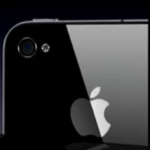
The InterWeb is buzzing about Android's sudden second quarter smartphone OS market share surge against Apple's iOS and Research in Motion's BlackBerry OS. Windows Mobile was a goner last quarter. But behind the numbers is a bigger question: Which mobile platform will be more successful? Smartphones are but one small measure of success.
Android's smartphone surge -- to No. 3 worldwide and No. 1 in the United States during second quarter, according to Gartner -- doesn't surprise me. I laid out the scenario in October 2009 post "Apple cannot win the smartphone wars" and again in May with "Like I said, Apple cannot win the smartphone wars."
Confessions of a Windows 7 to Ubuntu switcher

The other night, I got quite the shock. A good friend, who is a Windows enthusiast and IT administrator/consultant, informed me that he had dumped Windows 7 for Ubuntu. I didn't see that coming. For one, he's a Windows fan. For another, I would rate Windows 7 as nearly Microsoft's best operating system ever (sorry, even with the driver problems, Windows NT 4 still ranks as my fav; for its time -- 1996ish). My buddy contacted me by Skype, and I kept the transcript which I offer here with his permission.
Many of my questions were deliberately pointed, for three reasons. 1) As with all interviews, I strive for impartiality. 2) This friend, whom I'll call IT Guy for this post, is a good buddy. I know his personality enough to press hard about certain things. 3) I don't want to give some of Betanews' more rabid commenters cause to accuse of bias against Microsoft or Windows (I have none, but they accuse anyway). Hey, I'm just as surprised as you about my buddy's Ubuntu conversion. He had tried Linux years ago and didn't really like the experience, particularly because of driver problems and deficient or missing applications.
The Google-Verizon proposal is worse than evil

They say that the devil is in the details. But some things are so evil, the horned harbinger of deceit and doom is an obvious and menacing presence. The Google-Verizon proposal for an "open Internet" is the worst kind of evil, because Google so ardently asserts that "you can make money without doing evil" and the companies convincingly con with a deceitful sleight of hand. Their proposal for an open Internet is nothing of the kind. Google and Verizon offer to grant something people already have (unfettered, wired broadband) while exempting something Internet users want more of (unfettered, mobile wireless).
But the proposal's deceit goes further. Google and Verizon have put before the US government a huge carrot, while hiding behind their backs an even bigger stick. The two companies want the US Congress to pass their proposal into law, thus empowering the Federal Communications Commission to exert more control over the wired Internet. There are plenty of folks on Capitol Hill who want more Net control, and Google and Verizon have wrapped it up with ribbon and bow. The government's authority would be under the guise of keeping the Internet free and open for everyone -- ensuring Net neutrality. For lawmakers, the proposal is a seeming goldmine of goodwill during a tough election year.
Joe's Bio
Joe Wilcox is BetaNews executive editor. His motto: Change the rules. Joe is a former CNET News staff writer, JupiterResearch senior analyst, and Ziff Davis Enterprise Microsoft Watch editor.
Ethics StatementBetaNews, your source for breaking tech news, reviews, and in-depth reporting since 1998.
© 1998-2025 BetaNews, Inc. All Rights Reserved. About Us - Privacy Policy - Cookie Policy - Sitemap.
